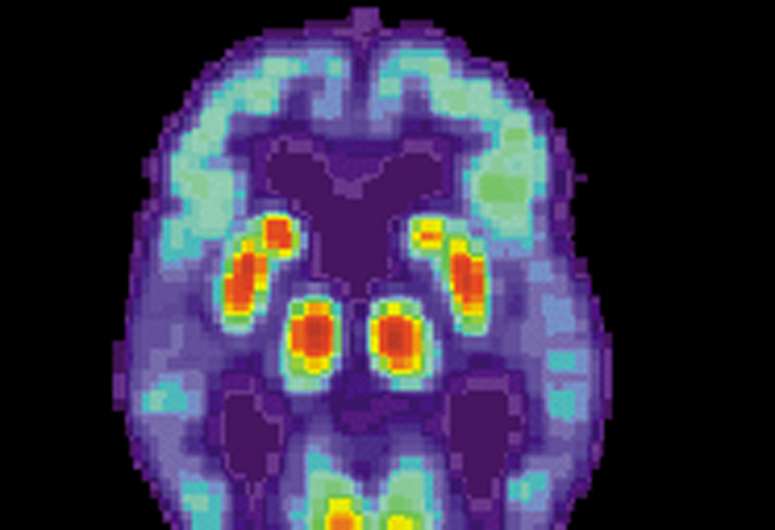Researchers shine new light on molecular mechanisms in brain diseases

Rutgers researchers have discovered some of the first molecular insights into how toxic proteins are regulated in neurodegenerative diseases such as Alzheimer's and Parkinson's.
The study appears in the journal Proceedings of the National Academy of Sciences.
Cells naturally grow old and die, but proper regulation of cellular proteins is crucial to maintaining a healthy brain as we age. In neurodegenerative diseases, protein aggregates—or clumped fragments of misfolded proteins—spread to neighboring cells, but how that toxic material is transferred remains poorly understood.
The Rutgers researchers studied roundworms whose stressed nerve cells can extrude neurotoxic proteins in large packets called exophers and how specific stresses affect this extrusion. They found that specific cellular signals are needed to form exophers and, unexpectedly, that fasting dramatically increases the production of exophers. They also identified three cellular pathways that increase production of exophers during fasting.
"In establishing an initial molecular model for trans-tissue requirements for fasting-induced exopher elevation in neurons, we report molecular insights into the regulation of aggregate transfer biology relevant to the fundamental mysteries of neurodegenerative diseases," said the study's first author Jason Cooper, a postdoctoral research fellow in the Department of Molecular Biology and Biochemistry at Rutgers University-New Brunswick.
"In neurodegenerative diseases, toxic proteins spread to neighboring cells to promote cell death. Given the importance of managing protein aggregates in aging and neurodegenerative diseases and the poorly understood biology of how those aggregates are transferred, a detailed understanding of the transfer mechanism may reveal previously unrecognized therapeutic targets."
More information: Jason F. Cooper et al, Stress increases in exopher-mediated neuronal extrusion require lipid biosynthesis, FGF, and EGF RAS/MAPK signaling, Proc Natl Acad Sci (2021). doi.org/10.1073/pnas.2101410118
Journal information: Proceedings of the National Academy of Sciences
Provided by Rutgers University



















